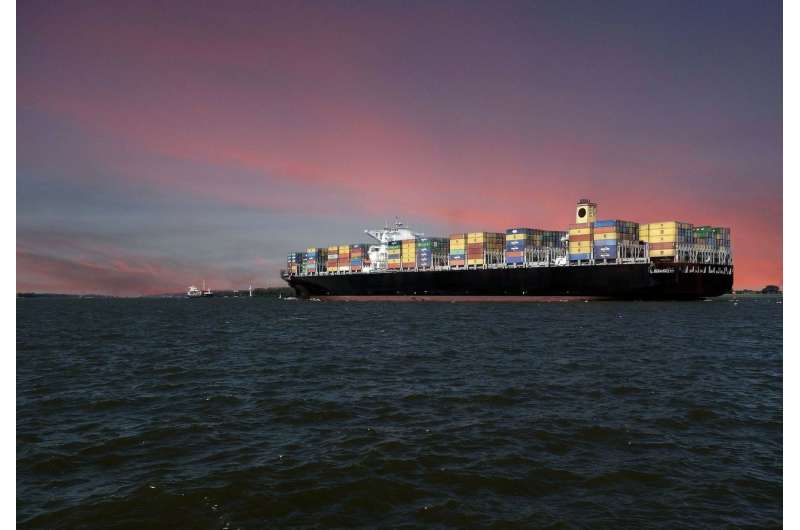November 13, 2019 report
Environmental groups call for speed limits on ships

Bob Yirka
news contributor

Environmental groups Seas At Risk and Transport and Environment have announced the results of a study they commissioned to Reynolds Environmental Sustainability Consultants (RESC). A paper written by the team at RESC has been posted to the Seas At Risk . In it, the researchers describe their findings—namely that their evidence that implementing speed limits on ships around the world would reduce the industry's carbon footprint, and would also reduce air pollution. They noted that reducing speeds would also lower deaths of whales due to collisions with ships.
Shipping is very big business, and one of the primary ways that goods are moved around the world. Cars, manufacturing materials oil, and other goods are commonly shipped, keeping the global economy running. By some estimates, 80 percent of all manufactured goods are transported via ship at some point. Unfortunately, most ships are powered by engines that emit greenhouse gases (up to three percent of total global emission), along with sulfur, nitrogen oxides and black carbon. They also generate a lot of noise, which can interfere with the navigation and communication abilities of sea life.
In this new effort, the researchers looked at the issue of speed—after a certain point, the faster a ship moves across the water, the more pollutants it emits and the more noise it makes. They note that currently, most ships cruise at speeds of 20 to 24 knots. They suggest the international community force shipping companies to reduce their speeds by 20 percent, which would be roughly equivalent to sailing at 16 to 19 knots. They claim that doing so would result in an immediate drop in greenhouse gas emissions by more than 25 percent. They further contend that doing so would reduce nitrogen and sulfur emissions by approximately 24 percent and that there would be significant reductions in black carbons. They also claim that such a speed limit would reduce noise pollution by 66 percent and whale deaths due to collisions by 78 percent (they assume slower ships would mean fewer collisions and more whales surviving the collisions).
The report by the team comes just in time—members of the International Maritime Organization will be meeting in London this week to discuss among other things, speed limits on ships.
Written for you by our author —this article is the result of careful human work. We rely on readers like you to keep independent science journalism alive. If this reporting matters to you, please consider a (especially monthly). You'll get an ad-free account as a thank-you.
© 2019 Science X Network

















